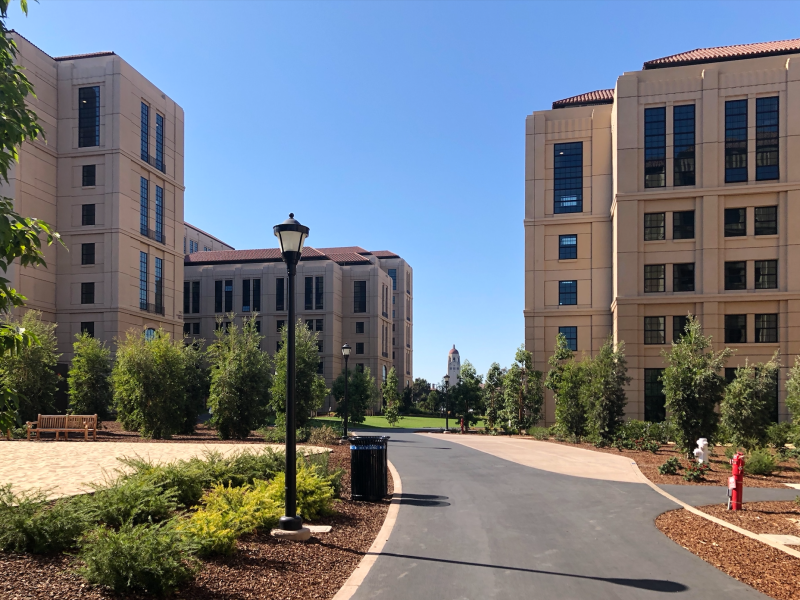The Graduate Student Council (GSC) raised concerns about exclusivity in Stanford student organizations and the rise of competition in undergraduate clubs at Tuesday’s meeting.
The Undergraduate Senate (UGS) also brought forth two bills that they hope to develop and implement with the GSC — one on the topic of student free speech and one on ensuring student athlete wellness with the upcoming conference shift from the Pac-12 to the Atlantic Coast Conference (ACC).
Steve Ross, the associate director of student organizations and leadership development at the Office of Student Engagement (OSE), said that some student organizations like club sports and bands are not open to all students and therefore can not identify as a voluntary student organization (VSO).
Kavya Sreedhar, a fourth-year Ph.D. student in electrical engineering, said many graduate student organizations are “opt in,” meaning that students are able to participate at will. However, for undergraduate students, clubs can be quite competitive: some have auditions or interviews that determine whether the student can participate in the club, which diverges from their designation as VSOs, Sreedhar said.
“Ideally what it should be is that student orgs are open and available to everybody, within as much as they can support,” Ross said.
Sreedhar said that per GSC policies, the council has to ask clubs seeking funding if it is used toward events and activities that will be accessible to all students. However, for club sports — which are inherently competitive — GSC is not able to apply the same policy restrictions.
Sreedhar said the council must be consistent in decisions on funding across clubs.
During the meeting, Chris West, the Graduate School of Business representative, asked if Stanford would consider eliminating gender-based social clubs like Harvard. Ross said removing gender basis for clubs does not address the nuance and complexity within student spaces that celebrate certain identities, particularly gender minorities. The OSE is currently navigating this discussion, Ross said.
The council also addressed the Stanford Graduate Workers Union’s request to hold a protest in White Plaza. Ross clarified that it does not cost money to hold the protest. He encouraged people interested in protesting to work with the GSC and appropriate University offices to ensure that campus rules are followed.
“Know that there are admin across campus who do want to support you all and make sure whatever it is you’re trying to do … you’re able to do,” Ross said.
The council also discussed tuberculosis tests for graduate student volunteers. The existing precedent is that GSC will cover test costs if Emergency Grant-in-Aid does not. The Haas Center only covers one year of funding for volunteers. Councilors said it would make most sense for the council to handle test reimbursements when not covered by Emergency Grant-in-Aid.
Kristen Jackson, GSC co-chair and second-year Ph.D. student in education, said it was strange that GSC activities funds were needed to cover medical procedures.
“I think there’s a gray area here on what student participation looks like and what we should cover,” Jackson said.
GSC members said they plan to put pressure on this topic now because the beginning of the academic year is the ideal time to adjust existing funding policies.
For the short term, however, GSC encouraged student groups to try the Emergency Grant-in-Aid first and ensured GSC would reimburse any non-covered costs if necessary.
The council also voted unanimously to suspend the prior notice for the Nominations Commission Appointments and confirmed six nominated commissioners, one being a graduate student.
Diego Kagurabadza ‘25, Undergraduate Senate (UGS) co-chair, also proposed two joint bills with GSC that were discussed but not voted on. The first bill concerns accommodating athletes during Stanford’s transition to the ACC.
“Teams are going to be staying off campus for longer periods of time,” Kagurabadza said. “We think it’s really going to disrupt how students can actually perform academically.”
He said the joint bill would push for working with faculty to standardize accommodation for athletes when they are in season, to ensure that the cross-country travel doesn’t negatively impact students.
The second joint bill between the UGS and GSC recommends policy changes to protect free speech on campus.
Students can currently protest anywhere on campus as long as it does not disrupt campus activity. GSC members expressed concerns that the proposed joint bill might have negative impacts on potential graduate student strikes. The proposed policy could bar certain strikes because the inherent nature of strikes is to disrupt normal business, said Emmit Pert, a third-year Ph.D. student in chemistry.
The council looks to further discuss the two proposed joint bills with the UGS at a future date.
